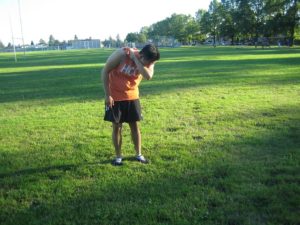If an individual ends up with worse allergies during the rainy season, he/she might have mold allergy. This type of allergy is not generally life-threatening but can affect the ability to lead a comfortable and productive life.
The main allergen in mold is the mold spore. Since these spores can make their way to the surrounding air, they can also enter the nose which triggers an allergic response. Remember that mold has been associated with asthma and allergies.
Mold thrives in moisture either outdoors or indoors. While the spores that constantly float in the air are capable of triggering reactions, the issue worsens when they adhere to a wet surface and starts to grow. Potential spots include damp areas under carpeting, unknown leak or buildup of moisture in a basement. Since mold grows all year round, this type of allergy is not seasonal. Those who have the allergy can suffer symptoms at any time especially those who live in areas that rains often.
What are the basic symptoms?
If an individual has mold allergy, he/she is likely to experience histamine reactions that are similar to other type of airborne allergies such as the following:
- Coughing
- Sneezing
- Congestion
- Postnasal drip
- Watery and itchy eyes
The individual might initially mistake the mold allergy for a sinus infection or common cold since the symptoms are strikingly similar.
The individual might initially mistake the mold allergy for a sinus infection or common cold since the symptoms are strikingly similar. In case the allergies occur along with asthma, the asthma symptoms are likely to worsen if exposed to mold with symptoms such as difficulty breathing, coughing and chest tightness. In some cases, there is also wheezing and other indications of an asthma attack.
Mold allergy in children
Some children might have sensitivity to mold. Since children spend some time playing outdoors in areas where parents do not venture, mold is usually encountered which is already prevalent in the air.
Children who have asthma might experience frequent episodes while playing outdoors. There is also an increase in the symptoms during the summer season when children are playing outside more often.
Toxic nature of mold
There have been various myths regarding the toxic nature of mold. Actually, it is hard for an individual to breathe in enough mold that can cause significant damage. If an individual is not responsive to mold, he/she will not experience a reaction at all.
In addition, the mold in which asthma has been linked to is usually found outdoors. It is important to note that outdoor mold will only worsen the symptoms for those who have asthma and not cause the condition itself. Nevertheless, a serious condition known as hypersensitivity pneumonitis is rare but linked to extended inhalation of mold among those who are highly sensitive.

